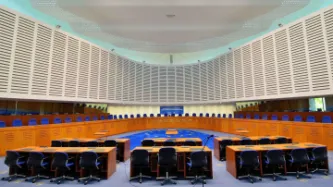Search Taxonomy Terms
Effective competition is necessary for privacy and innovation. Increasingly the digital economy is characterised by a few companies in dominant positions. These companies are able to impose terms and conditions that exploit our data and violate our freedoms.
PI challenges police forces' refusal to disclose information on mobile phone surveillance.
Privacy International made a complaint against six UK-based telecom companies on the grounds that they had permitted GCHQ to access their fibre optic networks, breaching OECD Guidelines.
Privacy International submitted an intervention to the Korean Constitutional Court challenging provisions of the Telecommunications Business Act
Privacy International intervened in a case before the European Court of Human Rights successfully challenging the unfettered use of surveillance measures as part of anti-terrorism legislation
A landmark case before the European Court of Justice on communications data retention where PI had intervened.
Privacy International filed an amicus brief to the United States Court of Appeals for the Ninth Circuit in a case challenging the use of Cisco technology for the persecution of the Falun Gong minority in China.
Our case challenging the UK Government's refusal to disclose records on intelligence sharing agreements.
A case that reached the Grand Chamber of the European Court of Human Rights analysing the UK’s mass interception program, first exposed by whistleblower Edward Snowden in 2013, relating to people’s rights to privacy and freedom of expression.
Mass surveillance can subject a population or significant component thereof to indiscriminate monitoring, involving a systematic interference with people’s right to privacy and all the rights that privacy enables, including the freedom to express yourself and to protest.









